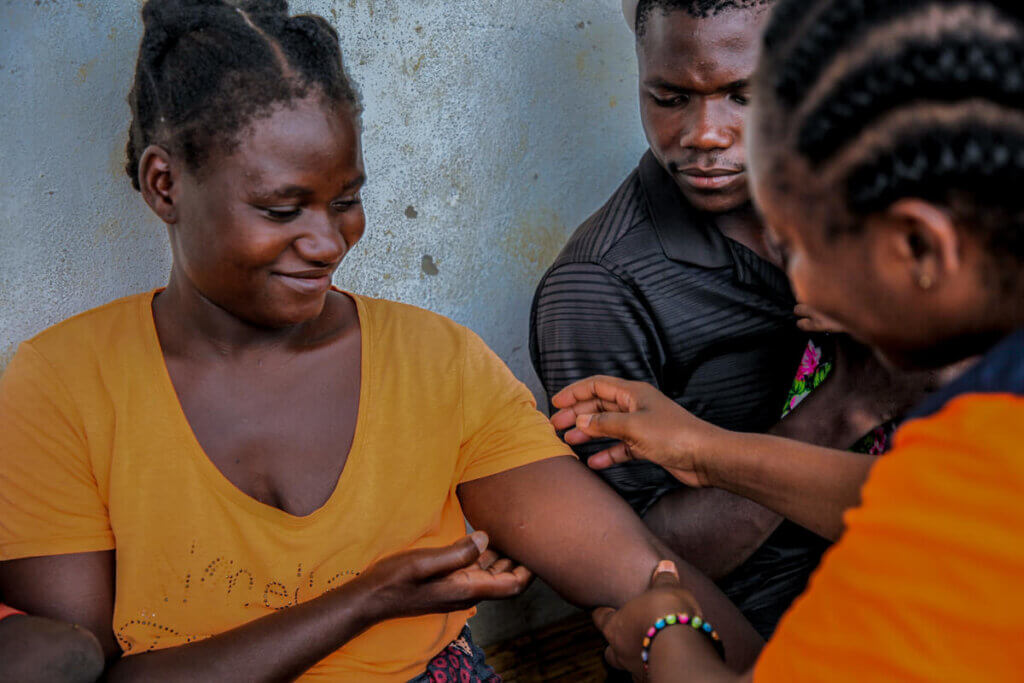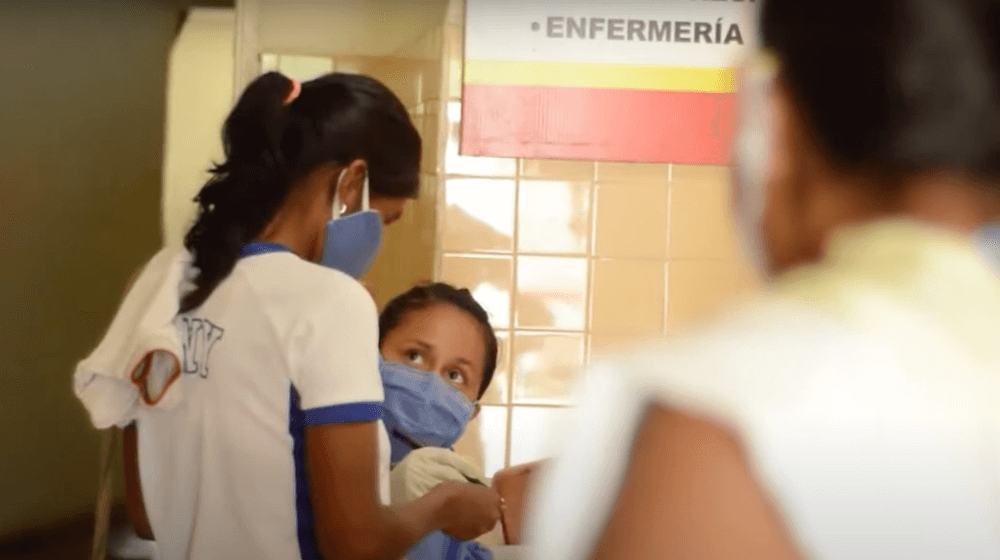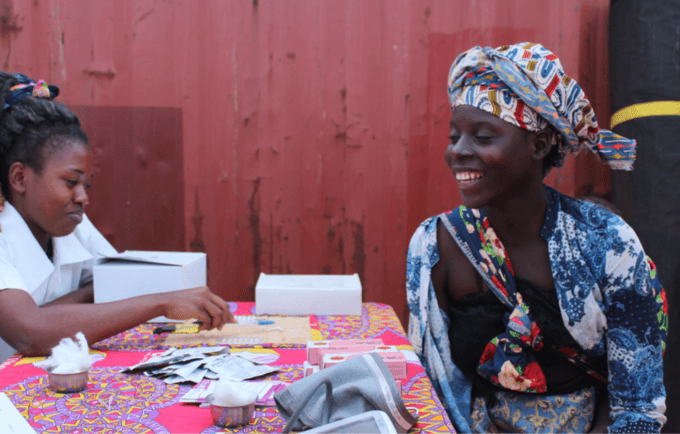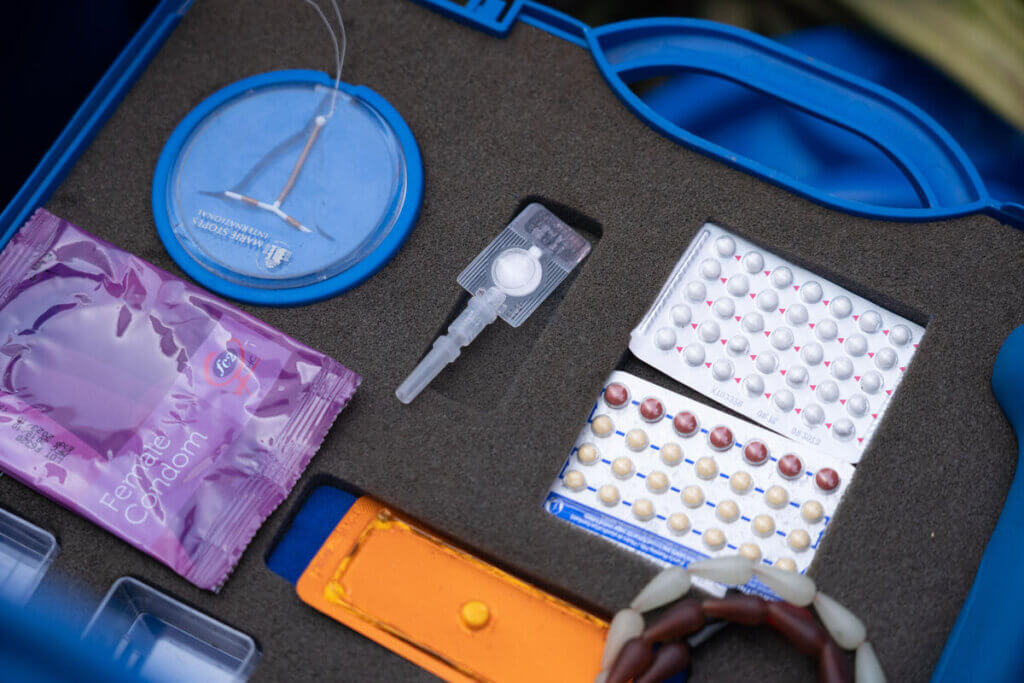
Access to contraception is a human right. It gives women and girls the chance to make informed decisions about not only their bodies but their futures as well. To deny women and girls access to quality and safe contraceptives and sex education is to deny them their bodily autonomy – and yet, millions of women and girls are denied family planning resources each year.
Right now, 256 million women and girls who wish to avoid pregnancies are not using safe or effective contraceptives. This can be attributed to barriers such as lack of information or support services, social stigma, resistance from partners and family members, and supply shortages.
Worldwide, these barriers to contraception lead to 121 million unintended pregnancies each year. To put that into perspective, half of all pregnancies in the world each year are accidental.
When women are stripped of the power to decide if and when to get pregnant, the ramifications ripple through their entire lives. Accidental pregnancies can force a woman or girl out of their education or careers, make it harder for them to leave abusive partners, and undertake further financial burdens that perpetuate the cycle of poverty. Unintended pregnancies can also sometimes have deadly consequences.
Childbirth and pregnancy complications are the leading cause of death globally for teenage girls. In fact, one-third of all preventable deaths could be eliminated by providing adequate access to family planning resources such as contraceptives and sex education.
Access to contraception transforms lives
There are no invalid reasons for why women and girls would want to avoid pregnancy – but today, we’re going to let two women share their stories.

“I don’t want to be scared anymore.”
The last time Omaira — a member of the Yukpa indigenous community in the Bolivarian Republic of Venezuela— went into labor, she nearly died. The mother of six knew what to expect when the labor pangs began, but immediately she knew something was wrong.
Thanks to the quick response of her medical staff, both Omaira and her child survived the delivery, but the birth left her traumatized and afraid of ever enduring another pregnancy. When UNFPA visited her community and shared information on contraceptives and family planning, she knew that it was time to take control of her fertility and health.
“That day, I told my husband it was enough. I wanted to get an intrauterine device.”
Thanks to supporters like you, Omaira safely received a birth control implant. Now, she looks forward to seeing her family flourish for years to come. “I take care of my health,” she shared with us after the procedure. “I want to see my grandchildren and granddaughters; I’m going to see the future of my children.”

“I can now go back to school.”
When Fátima became pregnant with her son at age 17, she thought it would be the end of her education and career. She dropped out of school to care for her child and had resigned herself to the idea that her life may continuously be interrupted by unplanned pregnancies – because she lacked access to crucial family planning information and resources. Then, UNFPA came to the displacement camp where she was residing.
The UNFPA staff provided the community with information about family planning resources and offered the services to all who wanted them. Fátima, who had never before used contraception, was visibly apprehensive when she made the decision to receive birth control from the UNFPA mobile brigade. She had a lot of fears about the effectiveness and side effects of each birth control offered, but the staff was able to assuage every fear and answer every question so she could make the best possible decision for herself.
In the end, Fátima decided to receive a birth control implant, which would offer her several years of contraception.
“This method offers me more confidence that I won’t get pregnant again for the next two years,” Fátima shared with us with a smile. “I can now go back to school, because I no longer run the risk of interrupting my studies because of an unplanned pregnancy.”

17.9 million lives that you have changed
As the United Nations sexual and reproductive health agency, we’re working tirelessly to give women and girls the chance to choose if and when to get pregnant – because access to contraception is a human right.
We are providing women and girls like Fátima and Omaira with a full range of family planning options, such as birth control pills, IUDs, implants, and condoms. We provide comprehensive sex education in communities around the world so women and girls can make informed decisions, and we can confront social stigmas around contraception. And we’re also working to strengthen supply chains, so women and girls always have access to family planning – even during emergencies.
In 2023, these efforts resulted in:
– 17.9 million unintended pregnancies prevented
– 6.4 million new sexually transmitted infections averted
– More than 1 billion condoms distributed
Thank you for helping to make this incredible and lifechanging care available. If you would like to see our full impact for women and girls in 2023, you can view our latest annual report here.